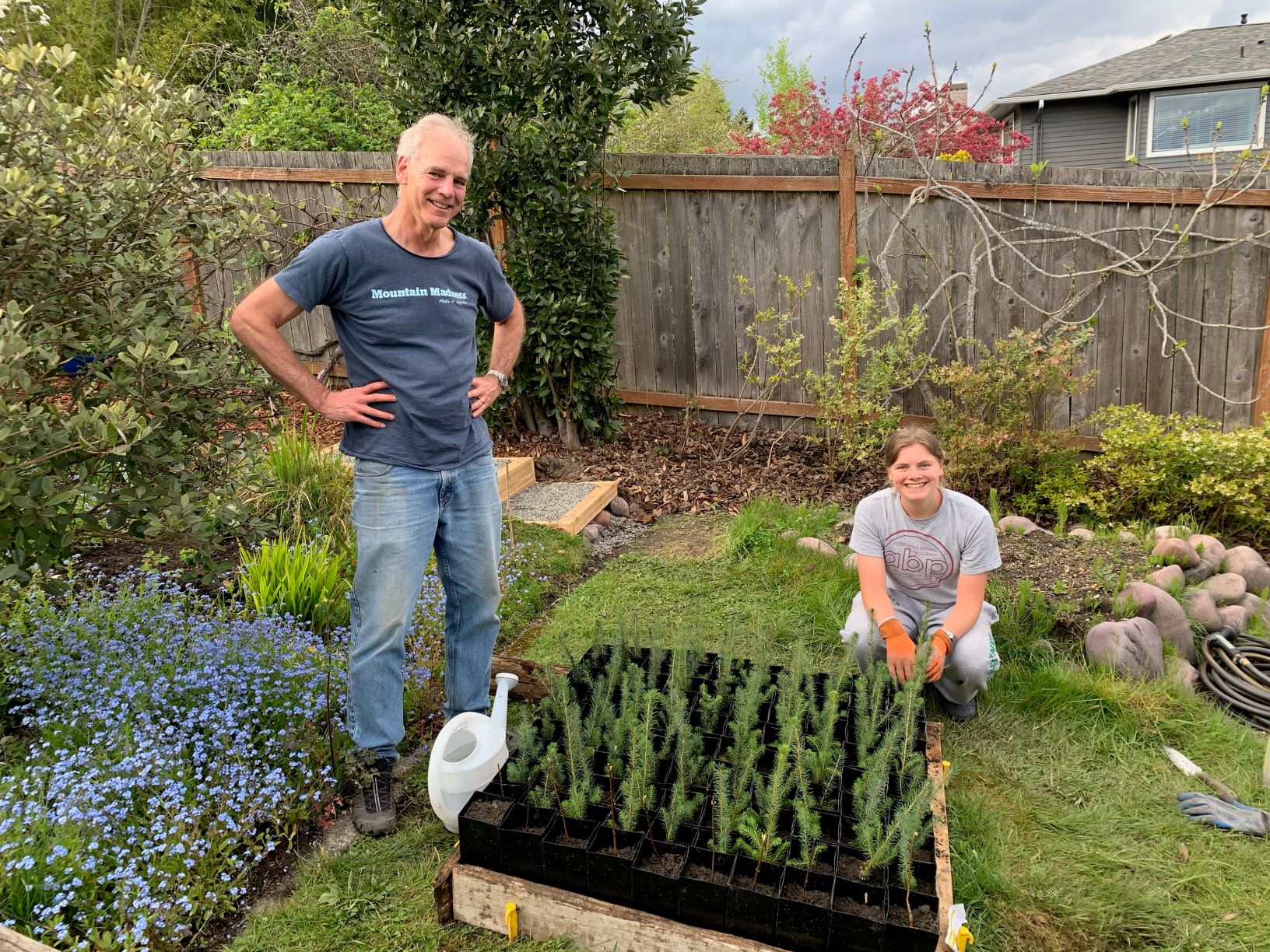Grow It Forward
Home gardeners grow tree seedlings for habitat restoration projects.
Leader
James Wright .
Location
9541 Phinney Ave N Seattle, WA 98103
About the project
Grow It Forward organizes gardeners in the Puget Sound area to grow tree seedlings for donation to habitat restoration organizations. Species such as salmon, are sliding into extinction due partly to loss of critical habitats, usually along rivers. There are local non-profit habitat restoration organizations that do difficult, time consuming work to prevent these extinctions. They identify small parcels that used to be critical habitat, but were destroyed by development and obtain agreements with landowners to restore the original habitat. They then re-create the original contours and hydrology of the land and re-plant with native plants.
Grow It Forward began with 23 volunteers in 2020, each growing 100 seedling "Micro-Nurseries" at their homes. Each Micro-Nursery costs about $120 for materials, including soil, seedling sprouts, plastic pots, and landscape fabric. Each volunteer grows their seedlings for 1-1/2 to 2-1/2 years until they are big enough to survive when planted at a restoration site. Volunteer pickup truck owners deliver the materials at the beginning, and later pick up the finished seedlings and deliver them to the restoration sites. Seedlings from a commercial nursery would cost about $3.50 each, so we save the habitat restoration organizations money. Maybe more importantly, we introduce the public, and the habitat restoration organizations, to each other.
In 2021 we will expand to an additional 100 Micro-Nurseries. These will be tended by each volunteer until we pick them up for planting in 2022 or 2023.
The Steps
- Collect money to purchase materials for one Micro-Nursery from each new Micro-Nursery volunteer using IOBY's crowd funding web site for security and to take advantage of their non-profit 501(c)3 status.
- Purchase enough topsoil, nursery pots, tree seedling starts, and landscape fabric for 100 new Micro-Nurseries (enough for a total of 10,000 seedlings!)
- Deliver these materials to each of the up to 100 new Micro-Nursery volunteers, with each having enough to grow 100 seedlings.
- Each Micro-Nursery volunteer tends their seedlings for the next 1-1/2 to 2-1/2 years.
- Collect the fully grown seedlings after 1-1/2 to 2-1/2 years and deliver them to various habitat restoration organizations in the Puget Sound area for them to plant at their restoration sites.
Why we‘re doing it
As the growing human population spreads over more of the earth, many plant and animal species are being driven into extinction by destruction of their habitats. Ironically, the loss of these species will ruin the habitats that humans need to survive. What can we do to stop this?
While it’s not possible to reverse all the destruction, it turns out that many species can be pushed to extinction from the loss of only very small amounts of “critical habitat” they depend on. Strategically restoring these small areas of critical habitats can sometimes save a species from extinction. But this requires the dedicated efforts of habitat restoration specialists to identify privately or publicly owned parcels of such land that has been damaged by development, get permission to reverse this damage, then do the work necessary to restore the habitat. Sometimes levees must be removed to allow natural flooding to resume and drainage channels filled. And then non-native plants must be replaced by natives. This work is mostly done by small, local, non-profits who must get funding for these expensive projects from a variety of public and private grants. Purchasing native potted tree seedlings from commercial nurseries is expensive. Grow It Forward marshals the skill and dedication of citizen gardeners to produce these seedlings and give them to the habitat restoration organizations. It’s sort of like the “Victory Gardens” where American’s grew vegetables to support the war effort during World War II.

